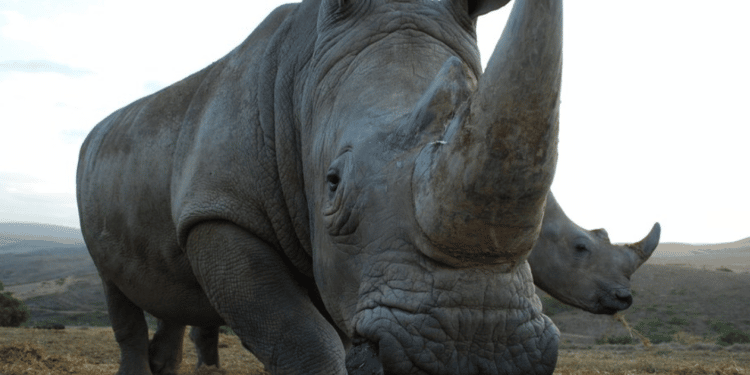Pembient, a U.S. Company, is using 3D technology to engineer ‘cultured’ rhino horn containing a mixture of real rhino DNA signature and keratin. Pembient believes it can reduce the economic incentive for poachers by flooding the market with the synthetic horn at very low cost, therefore driving down the demand for the real thing. However, the product has been controversial, especially among wildlife conservation advocates, who argue the sale of cultured rhino horn could exacerbate the problem, rather than alleviate it.
By the end of 2015, the number of African rhinos killed by poachers had increased for the sixth year in a row with at least 1,338 rhinos killed by poachers across Africa in 2015. Pembient, through its cultured rhino horn product, seeks to alleviate this crisis by introducing a cruelty free alternative, made from elements derived from a real rhino horn. Pembient hopes that, ideally, the market will end up discounting every horn, because there won’t be a reliable way to determine whether the horn is real. Once the economic incentive is eliminated, the poaching of rhinos will, as Pembient argues, decrease. The company plans to expand its line of products to include fake elephant tusks, tiger bones, and pangolin scales.
The increased demand for rhino horn largely arises from growing demand from the upper classes in China and Southeast Asia, where rhino horn is a symbol of wealth, and can be sold for roughly $300,000 per horn. Therefore, these individuals may not be persuaded to purchase the cultured option, simply because it is cheaper. This could lead to the creation of a deeper black market for the sale of real rhino horn, protected by the legal sale of cultured rhino horn if Pembient is successful.
Recent studies suggest that a legal trade instead acts as a conduit for the illegal trade, evidenced by the captive breeding of geckos in Indonesia and the domestic ivory trade in Hong Kong. Even if purchasers are willing to forego the real horn for the cultured version, opponents, including the International Rhino Foundation (IRF) and Save the Rhino International (SRI), argue that the cultured horn will still increase consumer demand, undermining global efforts to reduce demand. IRF and SRI issued a joint statement raising a number of additional concerns, including that the availability of legal synthetic horn could normalize or remove the stigma from buying illegal real horn, and increased confusion for law enforcement officials. The cultured horns would also provide illegal poachers with a disguise for real rhino horns. Furthermore, the organizations noted that “more than 90% of ‘rhino horns’ in circulation are fake but poaching rates continue to rise annually,” and therefore, synthetic horns would make little impact on demand.
A multitude of wildlife conservation governmental agencies and NGOs argue that the cultured rhino horn should be subject to the same limitations as the real thing. The Center for Biological Diversity filed a petition with the U.S. Fish and Wildlife Service, arguing both the Endangered Species Act and the Rhinoceros and Tiger Conservation Act ban the export, import, and interstate sale of endangered or listed species and their parts, products, and derivatives. Therefore, the cultured horns, as derivatives of an endangered species, should be banned in the U.S. The Center argues that even saying a product is made from rhino horn is as harmful to the species as if it was the real thing.
One of the best ways to combat illegal wildlife trafficking is to report it to the appropriate authorities. The NWC is a Grand Prize Winner in the Wildlife Crime Tech Challenge, an initiative of USAID in partnership with the National Geographic Society, the Smithsonian Institution, and TRAFFIC. NWC’s Grand Prize-Winning solution, the Secure Internet Wildlife Crime Reporting System, is a secure online platform, a one-stop shop through which whistleblowers can safely and anonymously file reports of wildlife crimes and gain useful information about how wildlife whistleblower laws work.
Learn about the National Whistleblower Center’s work to combat wildlife trafficking:
- Monetary Rewards for Wildlife Whistleblowers–A Breakthrough for Environmental Protection
- NWC Project Wins People’s Choice Award
- Congratulations to the Grand Prize Winners!
- Report Wildlife Crimes
- How to partner (for NGOs).
- How to partner (for attorneys).
- If you are a whistleblower seeking legal aid and would like to speak to NWC click here.
- Read more about the National Whistleblower Center’s international work, here.
** Hat Tip to NWC Legal Intern Alexi Nathan for her help with this blog!


